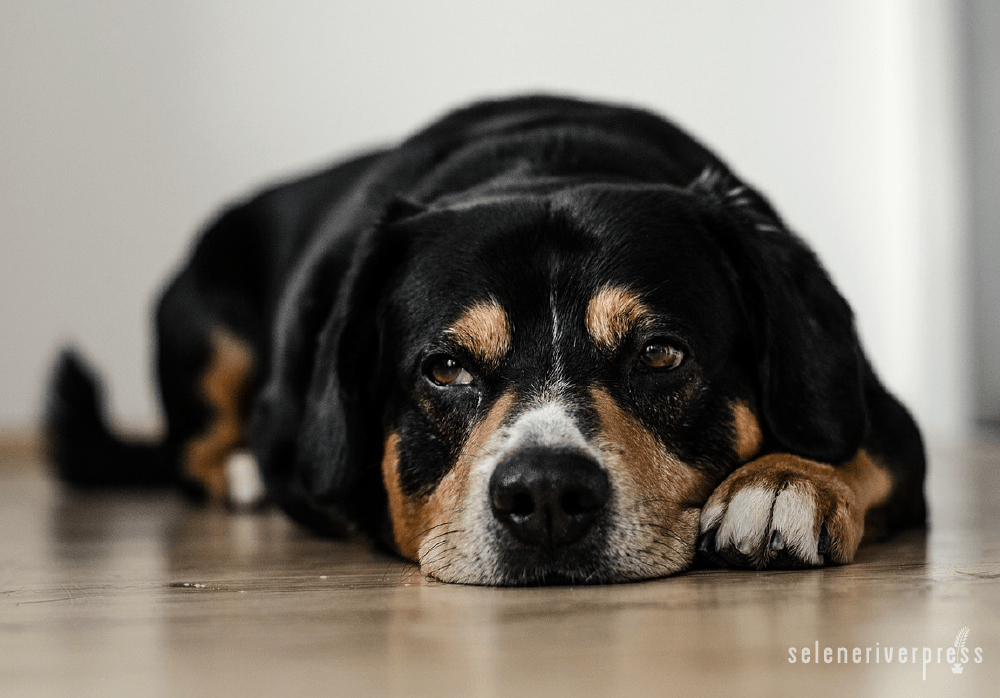The loss of a pet can be devastating and, at times, unbearable. It’s a natural process to grieve over losing a dear family member, whether that family member is two-legged or four-legged.
The grieving process happens gradually. It can’t be forced or hurried—there is no “normal” timetable. Some people start to feel better in weeks or months. For others, the grieving process is measured in years. Whatever your grief experience, it’s important to be patient with yourself and allow the process to naturally unfold.
Trying to ignore your pain or keep it from surfacing will only make it worse in the long run. Remember that feeling sad, frightened, or lonely is a normal reaction to the loss of a beloved pet. Exhibiting these feelings doesn’t mean you’re weak, so you shouldn’t feel ashamed.
For real healing, it’s necessary to face your grief and actively deal with it. By expressing your grief, you’ll likely need less time to heal than if you withhold or “bottle up” your feelings. Engaging in something positive during this time of sadness can expand your focus.
Here are some positive activities that will help you celebrate the life of your pet:
- Plant flowers or a tree in memory of your pet—this is my favorite one!
- Write about your feelings and talk with others about them—this is a very therapeutic way to process your experience.
- Hold a funeral or memorial service—this is helpful for giving children closure.
- Compose music or a song—that’s how songwriters convey their feelings.
- Frame a photograph, create a memorial photo album, or make a scrapbook—in time, these pictures will make you smile.
- Volunteer your time—distraction can help you focus on something other than the loss you’re feeling.
As we go through our own grieving process, we sometimes forget about our other four-legged family members. Let me ask you, do animals grieve? Anyone who has ever owned a dog or cat knows that animals show true emotions: fear, joy, disgust, anger, and, yes, love! I’m sure you’ve known of animals who stop eating, playing, or interacting when another pet in the household dies, or when the owner leaves for a vacation. They’re experiencing a loss of their own, plus they often sense their owner’s sorrow. After a pet dies, you can help other pets in the household by keeping their routines as unchanged as possible. Increasing their activity by going for walks or playing with toys may also be helpful. This will not only benefit your pet but help you too.
What effects does grief have on the body? Many times, grief can make both pets and pet owners feel physically sick. Stress can affect all the systems of the body and cause symptoms such as muscle tension, elevated blood pressure, excess production of epinephrine and cortisol (sometimes called the “stress hormones”), increased blood sugar, gastric intestinal problems, and a weakened immune system, to name just a few. The list goes on and on. Everyone has related to these symptoms at one time or another.
A thought occurred to me as I was sitting in a Standard Process West study group presented by Dr. Lowell Keppel. Regardless of the situation, the strained bodies and brains of our pets must relate the same way to optimal nutrition as the human body does when drained. Therefore, I decided that for the first month or two after the loss of a loved one, at a minimum I would support every dog in our household with Adrenal Desiccated from Standard Process. This product is intended to be given for a shorter term to provide an adrenal boost. It doesn’t contribute significantly to adrenal rebuilding, rather it does the work while giving the adrenals a break. We also give our pets products such as Canine Adrenal Support or Drenamin to support adrenal rebuilding and restore adrenal function. If anxiety or sorrow continues, we need to look into some of the Standard Process “physiologic” tranquilizers such as Organically Bound Minerals, Min-Tran, Min-Chex, or Orchex in conjunction with Canine Adrenal Support for more long-term care.
I just want to add that everyone grieves differently, and no one can fully understand all aspects of an individual’s sorrow. I’ve had pets all my life. When the time comes to say goodbye—whether it’s been 8 months or 17 years—it’s never easy. But at some point we do have to find a place for our sadness. If it stays constantly in our thoughts, it will start to consume us. When the time feels right, don’t get rid of your sorrow. Just put it in a special place in your heart so that you can always remember the good times, the love, and the appreciation you have for your pet and the life he or she lived. And most of all, celebrate life.



I’ve had pets all my life, too. It is so hard to lose them, but this post has some truly helpful advice. Thank you.
Homeopathic Ignatia is a great help during these times.